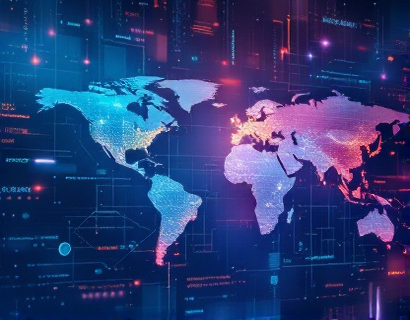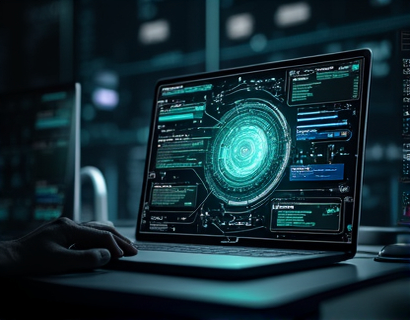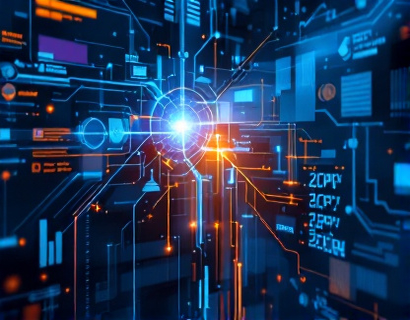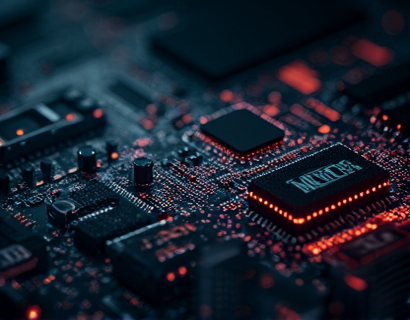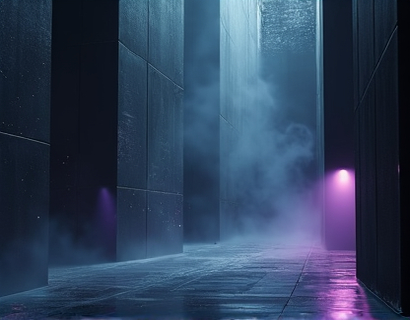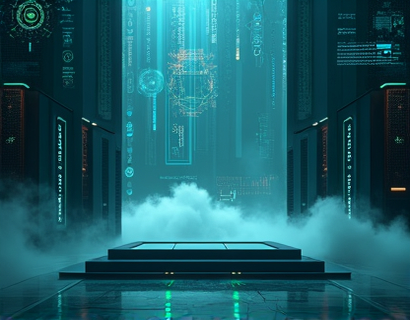Crafting Secure and Personalized Online Memorials with AI and Blockchain
The loss of a loved one is one of life's most profound experiences, leaving an indelible mark on the hearts of those who remain. In an era where digital presence is as significant as physical legacies, the need for secure and personalized online memorials has become increasingly evident. This article explores how the integration of Artificial Intelligence (AI) and blockchain technology can revolutionize the way we create, manage, and preserve digital tributes, offering a unique and meaningful way to honor the memories of our dear ones.
Understanding the Need for Digital Memorials
Bereaved families and individuals often seek ways to keep the memory of their loved ones alive, even as time passes and physical mementos fade. Traditional methods such as photo albums, letters, and physical monuments have been complemented by digital solutions that offer broader accessibility and interactivity. However, the digital space also introduces challenges like data security, privacy, and the risk of digital decay. This is where the combination of AI and blockchain technology can provide robust solutions.
AI in Memorial Creation
AI technology can significantly enhance the personalization and emotional depth of online memorials. By analyzing text, images, and even voice recordings, AI algorithms can curate a comprehensive and dynamic tribute that reflects the personality and life of the deceased. For instance, AI can compile a timeline of significant events, extract meaningful quotes, and even generate personalized messages based on the content available. This not only helps in creating a more accurate representation of the individual but also provides comfort to the bereaved by reminding them of the loved one's unique qualities and contributions to their lives.
Blockchain for Security and Immutability
Blockchain technology, known for its role in cryptocurrencies, offers a decentralized and secure way to store and manage data. In the context of online memorials, blockchain ensures that the digital tributes are immutable and tamper-proof. Each memorial can be stored as a unique block in the chain, with cryptographic hashes linking them securely. This means that once a memorial is created, it cannot be altered or deleted without leaving a trace, providing peace of mind to those who create and visit these tributes.
Combining AI and Blockchain for Enhanced Memorials
The synergy between AI and blockchain creates a powerful platform for crafting secure and personalized online memorials. Here’s how this integration works:
- Data Collection and Curation: AI algorithms gather and organize content from various sources, including social media, personal archives, and user inputs. This content is then curated to create a cohesive and meaningful tribute.
- Personalization: AI can analyze the collected data to identify patterns, preferences, and significant moments in the deceased's life. This information is used to personalize the memorial, making it a true reflection of the individual.
- Security and Privacy: Blockchain ensures that the memorial is stored securely and that access is controlled through cryptographic keys. Only authorized individuals can view or interact with the memorial, maintaining the privacy and integrity of the tribute.
- Interactivity: AI can enable interactive features such as virtual guestbooks, where visitors can leave messages, share memories, and express condolences. These interactions can be recorded and stored on the blockchain, creating a living archive of tributes and memories.
- Preservation and Legacy: Since blockchain is decentralized and immutable, the memorial remains safe from data loss and corruption. This ensures that the tribute endures for generations, serving as a lasting legacy for the deceased.
Benefits of AI and Blockchain in Digital Memorials
The combination of AI and blockchain offers numerous benefits that traditional digital memorial platforms cannot match:
- Enhanced Security: The use of blockchain technology ensures that the memorial is secure from unauthorized access and tampering, providing a high level of data protection.
- Personalization: AI-driven personalization ensures that each memorial is unique and tailored to the individual, capturing their essence and life story in a meaningful way.
- Interactivity and Engagement: Interactive features facilitated by AI allow for a more engaging and emotional connection between the memorial and its visitors, fostering a sense of community and shared remembrance.
- Long-term Preservation: Blockchain's immutable nature guarantees that the memorial will not be lost or altered over time, ensuring that the tribute remains intact for future generations.
- Privacy Control: Users have full control over who can access and interact with the memorial, thanks to blockchain's access control mechanisms.
Case Studies and Real-World Applications
Several initiatives and platforms are already leveraging AI and blockchain to create innovative digital memorials. For example, a platform might use AI to compile a digital scrapbook of a person's life, including photos, videos, and personal stories. This scrapbook can be stored on a blockchain, ensuring its longevity and security. Visitors can add their own memories and messages, which are also recorded on the blockchain, creating a dynamic and growing tribute.
Another application involves using AI to generate virtual reality (VR) experiences of significant places from the deceased's life, such as their childhood home or favorite vacation spot. These VR experiences can be accessed through the blockchain-secured memorial, providing a deeply immersive and emotional way to remember and honor the loved one.
Challenges and Considerations
While the integration of AI and blockchain in digital memorials offers many advantages, there are also challenges and considerations to address:
- Technical Complexity: Implementing such a system requires a high level of technical expertise in both AI and blockchain technologies. Ensuring user-friendly interfaces is crucial to make these platforms accessible to a broad audience.
- User Education: Many people may be unfamiliar with blockchain and AI concepts. Providing clear guidance and educational resources is essential to help users understand and utilize these technologies effectively.
- Regulatory Compliance: Data privacy laws and regulations, such as GDPR, must be strictly adhered to. Ensuring compliance while leveraging the benefits of AI and blockchain is a critical aspect of developing these platforms.
- Cost and Accessibility: While the long-term benefits are significant, the initial cost of developing and maintaining such a platform can be high. Efforts should be made to make these services affordable and accessible to all who need them.
Future Prospects
The future of digital memorials with AI and blockchain is promising. As technology advances, we can expect even more sophisticated and user-friendly platforms that offer deeper levels of personalization and interactivity. The integration of AI with other emerging technologies, such as augmented reality (AR) and machine learning, could further enhance the memorial experience, making it more engaging and emotionally resonant.
Moreover, the growing awareness of the importance of mental health and grief support could lead to the development of AI-powered tools that offer emotional support and counseling to those using these memorials. This holistic approach would not only honor the deceased but also support the living in their healing journey.
In conclusion, the combination of AI and blockchain technology offers a revolutionary approach to creating secure and personalized online memorials. These platforms not only provide a meaningful way to honor loved ones but also ensure that their memories are preserved and celebrated for generations to come.










